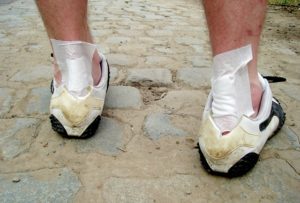- Rejuvenating Acupuncture818 East Main St.
Riverhead, N.Y. 11901631-591-1980 Available by Appointment
Gratitude
Acupuncture and Men’s Health
Acupuncture and Men’s Health
Traditional Chinese Medicine (TCM) is a complete medical system that has been around for nearly 3,000 years. It combines nutrition, herbs, acupuncture and other modalities to help keep the body functioning properly, while also treating any ailments that might occur. TCM has been used to treat both men and women, regardless of age and it is frequently becoming the medical choice for those who prefer to treat things naturally.
There are certain health issues more prevalent in men than women and many of these conditions can be easily controlled or treated using Traditional Chinese Medicine. Afflictions such as high blood pressure, depression, urinary issues, stress and prostate problems are just a few of the issues that are more frequently seen in men than women. And these issues, along with many others, respond very favorably to acupuncture and TCM.
Most people think of acupuncture for pain relief, but the truth is it can treat much more. Acupuncture can help with anxiety, depression, heart health, insomnia, digestive issues and of course any kind of pain. Acupuncture is most commonly thought of as a way of relieving pain and it is usually sought out after everything else has failed to provide adequate pain relief. Without purposely trying to cause a debate between the sexes, it is statistically shown that men are less likely to seek out help when they experience pain, as they don’t want to appear weak. This is where something like acupuncture can be a great asset for men. Regular acupuncture treatments as preventive medicine can help keep them in top shape, thus avoiding aches, pains, strains and pulls.
Acupuncture also calms the mind, the nervous system and the endocrine system. All of these things work in conjunction to keep the body functioning properly. However, in the world we currently live in, stress, anxiety and depression have become rampant. Specific acupuncture points can literally decrease the heart rate, slow breathing and relax the mind in a matter of seconds to minutes. This helps alleviate the added stress that men, in particular, feel on a daily basis.
TCM has a long history of being used to help with fertility issues and sexual vitality. As men age and life takes over, many men experience a lack of libido and decreased sexual function. Improperly balanced hormones affected by long hours at the office, improper diet and lack of sleep can all lead to sexual dysfunction and fertility problems. This all relates to the kidneys in Traditional Chinese Medicine. Regular acupuncture treatments and herbs are a great way to return hormone levels to normal and restore sexual vitality in men.
In much the same way that TCM helps balance hormones within the kidney and endocrine system, it is also frequently used to regulate the circulatory system. Men, once again, tend to have higher levels of stress that can affect the heart and circulatory systems. Specific acupuncture points and herbs can easily lower blood pressure, calm heart arrhythmias and increase circulation to the peripheral areas of the body.
This just touches the tip of the iceberg when it comes to men’s health. But it is easy to see why choosing acupuncture to help keep the body in alignment is a great option, especially for men.
Why You Should Get Regular Acupuncture Treatments
Why You Should Get Regular Acupuncture Treatments
Everybody knows you should see your family physician at least once a year and your dentist at least twice a year. But not everybody knows about acupuncture and Traditional Chinese Medicine and the many benefits it can provide for you. If you start incorporating acupuncture into your health and wellness regime, you may not have to rely on the family physician so much for those minor little issues. Let’s look at how getting regular acupuncture treatments can help you stay happy and healthy.
There are many ways acupuncture treatments can change a person’s life. One of the most noticeable is acupuncture can get you to look at your health from a completely different perspective. This could mean you might start taking a more in depth look at your health, which may allow you to veer away from some of the mainstream medical practices such as multiple pharmaceuticals. Many long-term acupuncture patients find they no longer need all the medications prescribed by their family physician, because the symptoms have been controlled using acupuncture.
Acupuncture is great for prevention. Because regular acupuncture treatments can balance hormones and boost immunity, there is a good chance you won’t need that annual flu shot or all those over-the-counter cold medications. A trained acupuncturist can spot a problem like decreased immunity from a mile away. It can appear as symptoms such as chronic fatigue, insomnia and even body temperature fluctuations. A couple of treatments can make a big difference.
What about relieving some of that extra stress we all deal with? Yes, regular acupuncture treatments can keep that at bay too. Many people don’t equate being poked with tiny needles as a relaxation technique, but it truly is relaxing. Many patients actually fall asleep after or while the needles are being placed. And the effects can last for days or even weeks. So the next time you feel irritable and overwhelmed, check out your local licensed acupuncturist.
Regular acupuncture treatments can help you save money. What? It’s true. This goes back to the previous benefits. If you don’t need as many pharmaceuticals, you will ultimately save money. Also, conditions like stress, anxiety, fatigue and depression can keep you from going to work, possibly costing you several days of pay. But with regular acupuncture treatments, your moods can be more effectively managed and you won’t need to miss work as frequently.
And the most popular reason to get regular acupuncture treatments is that it will help you remain pain free. We all have aches and pains. But research has shown acupuncture is more effective than opioids for controlling things like arthritic pain in the joints. It is also be incorporated into hospital emergency rooms throughout the United States, so people don’t need as many pain medications. As a matter of fact, in Asia, acupuncture is sometimes used by itself during and after surgical procedures to treat pain.
While many of you may have a needle phobia, don’t let that deter you. Acupuncture is part of an amazing medical system that has been around for nearly 3,000 years. In comparison, Western medicine has only been around for about 200 to 250 years. That puts things in perspective a little, especially when you consider most people in Asian countries live longer, happier, healthier lives than almost everybody in the United States. There’s no better time than the present to start a good habit. Just be sure to seek out a fully trained and licensed acupuncturist. Your whole life just might change for the better.
Acupuncture and TCM for Sprains and Strains
We’ve all heard of and maybe even experienced a sprain or a strain. But do you really know the difference? A sprain is defined as a stretch or tear of a ligament. A strain, on the other hand, is defined as an injury to a muscle or tendon. Sprains can result from a fall, a sudden twist or a blow to the body that forces a joint out of place, while a strain can happen from twisting or pulling a muscle or tendon.
There are specific ways of telling the difference between a sprain and a strain based on the symptoms that appear. Symptoms of a sprain include pain, swelling, instability, bruising and loss of functional joint ability. Sometimes there is an audible pop when the injury occurs. There are different levels of sprains too. A Grade I or mild sprain is generally caused by overstretching or the minor tearing of a ligament, but the person will still have joint stability. A Grade II or moderate sprain is more intense, but the person only experiences some loss of joint function. A Grade III or severe sprain occurs when there is a complete tear in the ligament and the person is unable to put any weight on the joint.
Strains, on the other hand, have very different symptoms. Most people who experience a strain, will report pain, limited range of motion, muscle spasms and possibly muscle weakness. There may also be cramping, swelling and inflammation.
Instinctively, when a person experiences a sprain or a strain, learned first aid skills take over. Things like taking the pressure off the joint, raising the joint and applying ice to alleviate swelling and inflammation are all great places to start. Icing a sprain or strain is only good for the first 48 to 72 hours, as it will help decrease swelling. However, prolonged use of ice may impair movement and also interfere with the healing process because it constricts the tissues and impedes blood flow. But there are other possible solutions to healing a sprain or a strain. And one of these would be to see an acupuncturist or Traditional Chinese Medicine practitioner.
Traditional Chinese Medicine practitioners have many tools at their disposal that can assist in increased healing of a strain or sprain. When either of these injuries occur, the muscles surrounding the area tighten up in an effort to protect the injured site. This can then lead to stiffness in that joint. This is the body’s natural defense mechanism that decreases strong blood flow to the area. TCM practitioners use acupuncture and other modalities to help loosen up the muscles and increase blood flow to the area, which brings in tissue-healing oxygen and nutrients.
Increasing blood flow is just one way TCM can help. There are also specific acupressure points that reduce swelling, decrease inflammation and alleviate pain. Through the use of regular acupuncture treatments following a sprain or strain injury, the body can heal faster. The more frequently a person comes in for their acupuncture treatments, the quicker the results will occur.
The Best (and Worst) Thanksgiving Foods
 Thanksgiving is a great meal. Friends and family come together to give thanks and celebrate the harvest season–
Thanksgiving is a great meal. Friends and family come together to give thanks and celebrate the harvest season–
…and to overeat.
All of us know the feeling of eating too much, too heavy, too rich. When we should be enjoying our time with loved ones, we are uncomfortable. We exasperate our health conditions and catch a cold. We put on weight and feel lethargic.
I’m not going to tell you to make dramatic changes to your Thanksgiving meal. Usually that doesn’t work—and besides, it’s no fun.
Instead I suggest you just make small choices. Pick one food instead of the other. Make little positive choices and they’ll add up to a healthier, more enjoyable meal. continue reading
The Pessimist’s Guide to Gratitude
 Your mother was right–say thank you.
Your mother was right–say thank you.
Scientists have now proven what your mother always knew–it’s good to be grateful. Being grateful is more than just politeness; it’s actually good for your health and well-being.
In a study by Robert A. Emmons, of the University of California, and Davis and Michael E. McCullough, of the University of Miami, people who kept gratitude journals showed higher levels of health and well-being than people who journaled neutral events or counted hardships. After 2 months, the people who journaled their gratitude felt more optimistic and happier than their control counterparts. They reported fewer physical problems and spent more time working out. People with neuromuscular problems who did the same thing fell asleep more quickly, slept longer and woke up feeling more refreshed. Even their spouses noticed the difference!
How can you cultivate gratefulness even if you’re a glass-half-empty person?



